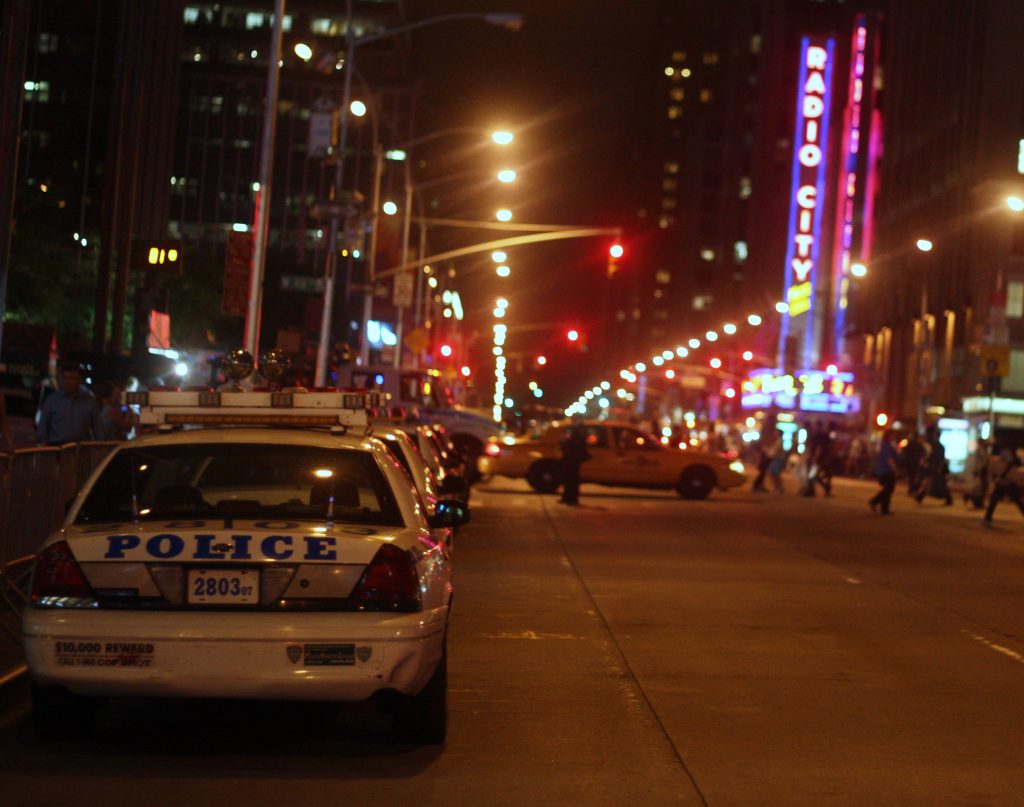By Saul Roth
On the other hand, there is a possible misconception that police officers consume more alcohol than the general public. A study of police officers in Mississippi by Lindsey, Banks, and Shelly (2008) showed that of the 1,328 officers studied, 70 percent either did not drink alcohol or only consumed alcoholic beverages once per month. (Lindsey, et al 2008) relates it is possible these some officers might not have been forthcoming as they might have been concerned of their respective police department learning of their disclosure. Earlier studies in the 1970s produced different results, however. Reiss (1971) found that between 3.2 and 18.4 percent of police officers consumed alcohol on duty. Blackmore (1978) had police management considering alcohol abuse a very serious problem in police departments, as police managers believed that over 20 percent of officers abused alcohol. It is possible that the officers other studies were not as forthcoming as the authors would have liked them to be. The reason for this is the chance of management learning of a police officer’s alcohol abuse problem (Lindsey et al., 2008).
The process of officers drinking alcohol in social settings begins in the police academy. The new officer is put into a cohesive unit that works together. The paramilitary organization breeds camaraderie as well as suspicions of others from the outside. Police officers associate together and it is not uncommon for them to frequent bars and other establishments that serve alcohol to foster cohesion in their relationships. Indeed, many officers conform to the peer pressure to consume alcohol with their fellow officers. The shift work also tends to lend it self at times to this behavior. Nonetheless, research suggests that consumption by police officers does not seem to be any more or less than the general public (Lindsey et al., 2008).
Violanti (2010) did a study on police use of alcoholism, referring to Richmond et al.’s, (1999) study of police officers in Australia. Violanti (2010) states “according to the Substance Abuse and Mental Health Services Administration, 8.3 percent of protective service workers in the U.S. reported heavy alcohol abuse in the previous month” (p.?). The police academy is also cited as a venue during which the new police officer is introduced to the culture of going out to consume alcohol. After the police academy, the new officer will be on patrol where he or she will be emotionally impacted by critical incidents on the job. Those police officers that are used to consuming alcohol will turn to more alcohol use to handle the new stresses of patrol (Violanti, 2010).
Moreover, Violanti (2010) discovered that 11.5 percent of the police officers in his sample drank seven or more drinks on a typical day. The younger female officers drank more in excess of the older female officers. This again may be the female officer trying to fit into the police culture. Family discord was also a factor in increased alcohol consumption, as well as problems related to the police department (Violanti, 2010).
IX. Interview of Anonymous Nassau County Police Department Employee
Investigator: How long have you been with the Nassau County Police Dept.?
Employee: Over 31 years.
Investigator: How long have you been in your current position?
Employee: About 8 years.
Investigator: How many police officers do you usually see for counseling?
Employee: Ten to 15 at any given time.
Investigator: What are the main reasons that police officers get counseling?
Employee: Domestic issues at home.
Investigator: Are these issues related to their employment with the police department?
Employee: Sometimes they are and sometimes they are not. The ones that are not might have some issues that do relate back to their work. The officer on many occasions has anger issues.
Investigator: Do officers that come in for counseling discuss the stress of the job?
Employee: The officers that do complain about the job or stress of the job usually relate to a boss they are having difficulty with.
Investigator: Have you counseled officers after a traumatic event? Do you go to the scene?
Employee: The department has peer counselors that go to the scene of an incident. I have been called to the scene, but when I do, I am still doing the same job as a peer counselor. I work with the officers a few days after the event. That is when counseling is best for officers that are involved in a shooting or witnessed a tragic event.
Investigator: Do you notice burnout in officers you see?
Employee: I do notice burnout with some officers, but most burnout I see is among the civilian communication operators. They work long hours in a stressful environment and have poor civilian supervision.
Investigator: Do you have officers come in for alcohol abuse counseling?
Employee: Yes I do. None are voluntary. A supervisor refers them all to me.
Investigator: Have you known of any police suicides while in your current position?
Employee: There have been about four suicides.
Investigator: Were any of these suicides related to their police work?
Employee: They were all related to relationship problems.
Investigator: Did the relationship problem have anything to do with their work at the department?
Employee: That I am unsure of.
Investigator: Were you working in your position when Lt. Walsh committed suicide?
Employee: No, I was not. It occurred right before I started this position.
Investigator: I came on the department with Lt. Walsh and was promoted to sergeant with him. I heard that he committed suicide right after a NasStat meeting that he believed he performed poorly at.
Employee: Yes, I heard the same thing.
Investigator: What percentage of police officers on the Nassau County Police Department do you believe have PTSD?
Employee: Most officers do not know, but every officer on the police department that has worked on patrol has some form of PTSD.
Investigator: I never thought of it like that. I am recently retired, but just recall a dream of being on a burglary call with a subject hiding in the closet. I had my gun out and was screaming to get out with expletives. My wife heard me sound like I was whimpering, though.
Employee: There you go. That shows that you have some PTSD.
Investigator: I appreciate you giving me this time. If I have any other questions, will it be okay to contact you?
Employee: Sure.


Recent Comments